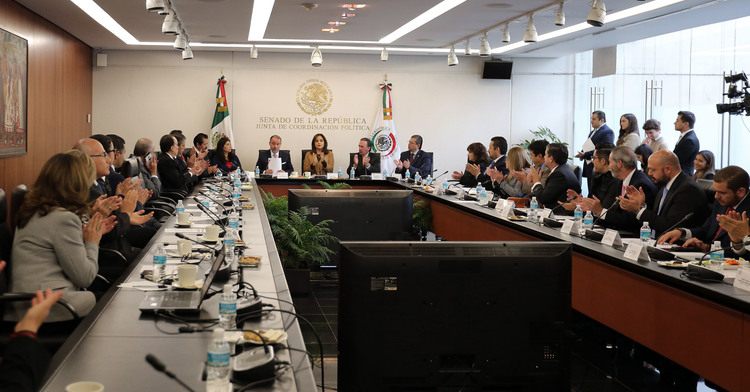By: Karina Johnson
Impunity Watch Reporter, North America
WASHINGTON D.C. — On Friday, November 10, the Wall Street Journal published an article stating that Retired Lt. Gen. Michael T. Flynn was allegedly involved in a plan to kidnap a US-resident Turkish dissident on behalf of the Turkish government in exchange for approximately $15 million dollars.

Fethullah Gulen, a Muslim cleric who has resided in Pennsylvania since 1999, has been blamed by Turkish government officials for the failed coup against Turkish President Erdogan’s administration in summer of 2016. Turkey has requested Gulen’s extradition under the US-Turkey extradition treaty for Mr. Gulen’s alleged role in the coup, but the Department of Justice has so far denied the requests.
Flynn’s company, Flynn Intel Group, was hired in August 2016 by a firm with ties to Turkish government officials to investigate Mr. Gulen and to present the results of the investigation in a short film. While the film project was never completed, Flynn’s company received $530,000 in November, and Flynn himself wrote an opinion piece about Fethullah Gulen published on November 8, 2016, in The Hill.
In a mid-December meeting at the “21” Club in New York, Turkish officials allegedly offered Michael Flynn and his son, Michael Flynn Jr. approximately $15 million dollars to assist in the forcible removal and “extra-legal” extradition of Gulen to Turkey. The alleged plan included discussions of transporting Gulen by private jet to Imrali, a Turkish prison island. This meeting occurred after the Trump administration had named Flynn the next national security advisor.
President Trump asked for Flynn’s resignation as his national security advisor in mid-February 2017, twenty-four days after Flynn’s appointment. Flynn also served for two months in 2014 as the head of the Defense Intelligence Agency before being dismissed by President Obama for insubordination after “failing to follow guidance from superiors.”
Flynn registered as a foreign agent under the Foreign Agent Registration Act (FARA) on March 7, 2017, several weeks after his resignation as national security advisor. Lawfare posits that at the time of his dealings with Turkish officials, Michael Flynn was no longer simply a private citizen lobbying in favor of a foreign government, and whose disclosure of dealings to the Department of Justice would comply with FARA. Since Flynn had already been tapped to serve as national security advisor in the Trump administration, he was a public official “in transition,” and public officials are prohibited from acting as foreign agents under 18 U.S.C. § 219.
Not only was General Flynn an unregistered foreign agent during his dealings with Turkish officials, he received well over the $5,000 maximum for lobbyists, and if the allegations in the Wall Street Journal article are true, Flynn may be charged with conspiracy to kidnap. Even if Flynn intended to instead use his position as national security advisor to return Mr. Gulen to Turkey by legal means, the fact that he was possibly offered $15 million dollars to do so may still constitute egregious felonious conduct. Lawfare states the matter plainly: “It’s no more legal to take $15 million to use your influence as national security adviser to bring about an outcome than it is to kidnap someone.”
The New York Times notes that President Trump’s firing in March 2017 of Former FBI Director James Comey after Comey’s refusal to halt the investigations into Flynn led to the appointment of special counsel Robert Mueller. Robert Mueller has, in turn, led the investigation as to whether associates of President Trump colluded with Russian agents in their efforts to manipulate the 2016 US presidential election.
According to The Wall Street Journal, Flynn’s lawyers earlier had entered into a joint defense agreement with President Trump’s legal team that allowed them to share information surrounding Mr. Mueller’s investigation that would otherwise be subject to attorney-client privilege. As of November 24, Michael Flynn’s lawyers stopped cooperating with White House attorneys defending the President in special counsel Robert Mueller’s investigation.
Flynn’s decision to end cooperation with the White House attorneys may signify that Flynn has entered into plea deal discussions with Mr. Muller’s team, which recently indicted Paul Manafort, Rick Gates, and George Papadopoulos—all three former campaign aides of President Trump.
JustSecurity has compiled a timeline of the Trump administration’s knowledge of the federal investigations into the relationship of Michael Flynn and Turkey.
For more information, please see:
The New York Times – A Split From Trump Indicates that Flynn is Moving to Cooperate With Mueller – 23 November 2017
Just Security – Turkey on Valentine’s Day: Did Trump Obstruct Investigation of Flynn as a Foreign Agent? – 17 November 2017
CNN Politics – WSJ: Muller probes Flynn role in plot to deliver cleric to Turkey – 11 November 2017
The Guardian – Ex-Trump aide Flynn investigated over plot to kidnap Turkish dissident – report – 10 November 2017
Lawfare Blog – What to Make of the Latest Story About Flynn and Gulen? – 10 November 2017
The Wall Street Journal – Mueller Probes Flynn’s Role in Alleged Plan to Deliver Cleric to Turkey – 10 November 2017
The Wall Street Journal – Accused Turkish Cleric Assails President on Anniversary of Coup Attempt – 14 July 2017
NY Daily News – Michael Flynn, Turkish officials secretly discussed removing exiled Muslim cleric from U.S. – 24 March 2017
The New York Times – Michael Flynn Was Paid to Represent Turkey’s Interests During Trump Campaign – 10 March 2017
Associated Press – Flynn, fired once by a president, now removed by another – 14 February 2017







